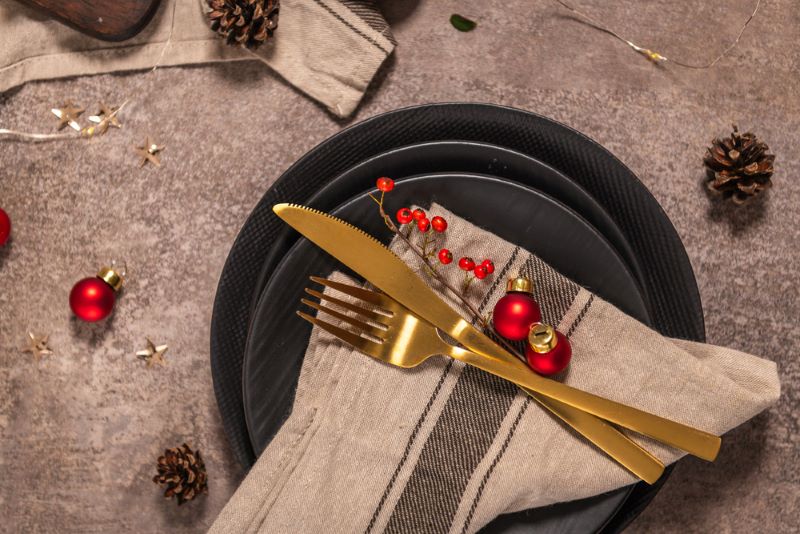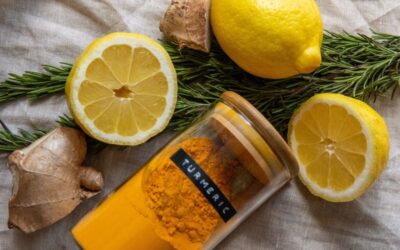Christmas can seem like a minefield if you have IBS symptoms and you’re following a low FODMAP diet. I’m always asked the question “What can I eat at Christmas with IBS?” My answer is always that you can still enjoy Christmas, even have a few extra treats, without it having a major impact on your IBS symptoms. With a little planning and creativity, you can enjoy the festivities without compromising your gut health. Here are some tips to help you enjoy the festive season.
First, let’s look at the low FODMAP diet
Before we dive into tips, let’s quickly recap on IBS, the purpose of the low FODMAP diet and what it involves. If you have IBS, you should have your symptoms checked out by your GP. This may involve some blood tests and further investigations. See this blog for further advice. FODMAPs are types of carbohydrates and stands for Fermentable, Oligosaccharides, Disaccharides, Monosaccharides and Polyols. These can trigger IBS symptoms like bloating, gas and abdominal pain in sensitive people. The low FODMAP diet can help you to identify the triggers for your IBS symptoms. It involves an elimination phase (around 4-8 weeks) and reintroductions or food challenges (this can take 8-10 weeks). It can be tricky to do alone though, so it’s best to do this with expert advice and support. In this way, you’ll get more accurate results, it will help you to adhere to the diet with useful tips and support and ensure that you’re not on the diet longer than necessary.
Some low FODMAP festive tips
- Communicate with Your Host:
- Be upfront: Let your host know about your dietary needs as soon as you. Send them a list of foods that you need to avoid. This will help them plan the menu accordingly
- Reassure them: You only need to make minor changes to the traditional Christmas dinner (see below)
- Offer to help: Offer to prepare a low FODMAP dish to share. This way, you can ensure you have something safe to eat
- Plan Ahead:
- Check food labels: Before attending a party or gathering, check food labels for hidden FODMAPs
- Pack snacks: Carry low FODMAP snacks like nuts, seeds or rice crackers to tide you over between meals
- Choose Wisely at the Buffet:
- Prioritize protein and fats: Opt for lean proteins like turkey, chicken, beef, fish or tofu
- Choose low FODMAP vegetables: Opt for vegetables like carrots, courgette, green beans or leafy greens
- Avoid high FODMAP fruits: Steer clear of fruits like apples, pears and cherries
- Be cautious with dairy: While some dairy products are low FODMAP, it’s best to keep these to a minimum or offer to bring your own lactose free dessert
- Indulge Mindfully:
- Small portions: Enjoy your favourite festive treats in moderation
- Choose low FODMAP desserts: Try desserts made with low FODMAP ingredients like almond flour and coconut milk (e.g. Low FODMAP Chocolate Fudge Cake)
- Manage Holiday Stress:
- Practice mindfulness: Engage in relaxation techniques like meditation or yoga to reduce stress
- Prioritize sleep: Adequate sleep can help regulate digestion
- Allow Yourself a Festive Treat:
- Prioritise your treat: We all need a treat over the festive period, but make sure you don’t over indulge. If you can adapt and stick to a low FODMAP Christmas dinner, then maybe allow yourself a small mince pie or a small dessert as a treat
How to adapt your Christmas dinner
By making some simple changes to your traditional Christmas dinner, you can easily make it low FODMAP. This will be great for your IBS symptoms. You can even have a few treats along the way:
- Turkey/Chicken/Beef/Lamb: All meat and poultry are low FODMAP, so this part of your Christmas dinner is fine (fish and tofu are also low FODMAP)
- Stuffing: Either buy wheat free breadcrumbs or make your own from stale wheat free bread and add herbs and spices to make your own low FODMAP stuffing
- Pigs in Blankets: Sausages wrapped in bacon can be low FODMAP. Just check the sausages for onions (even so, these could be your treat!)
- Mashed and Roast Potatoes: Potatoes are low FODMAP. If you prepare them yourself, you can be sure that they are fine. If you buy them ready-made, just check that flour hasn’t been added (often added to roasties to make them more crunchy)
- Roast Vegetables: Here it’s all about choosing wisely (see below). Avoid onions and garlic, mushrooms, cauliflower, beans and pulses (although a tablespoon of peas is okay)
- Yorkshire Pudding: Either make your own with wheat free flour or use a wheat free batter mix or easier still buy wheat free Yorkshires frozen
- Gravy: Use the meat juices and vegetable water and thicken with cornflour, alternatively use a ready-made low FODMAP stock or gravy (Check out FODMarket)
Low FODMAP Christmas recipe ideas
- Roasted Vegetables: A classic side dish, perfect as part of a low FODMAP: choose potatoes, carrots, swede, parsnips, courgette, cabbage or green beans
- Herb Roasted Turkey: A flavourful and healthy main course. All meat, poultry and fish are low FODMAP
- Wheat Free Stuffing: A delicious stuffing made with low FODMAP, wheat free bread. You can buy these ready-made or use up that stale wheat free bread (this freezes well ahead of the big day)
- Veggie alternatives: Try a low FODMAP Veggie Rogan Josh, a low FODMAP Saag Aloo or a low FODMAP Thai Red Curry for a change
- Low FODMAP Cranberry Sauce: A tart and tangy condiment. Check ingredients on ready-made sauce, but it’s easy to stew fresh cranberries with a little sugar
- Low FODMAP Chocolate Fudge Cake: A festive treat that’s easy to make and enjoy
Low FODMAP Reintroductions
The festive period is definitely not the right time to be doing any food challenges. You can always resume these when the holidays are over and your symptoms are back to baseline. You may need to get back to a strict low FODMAP diet to achieve this:
- Suspend challenges: If you’re in the reintroduction phase, don’t even think about doing any over the holiday period, suspend them a few days before the festivities
- Symptoms: If you’ve had any symptoms over the holidays, just get back to a strict low FODMAP diet once the festivities are over until your symptoms are improved and stable
- Resuming the challenges: To ensure accuracy of results, make sure your symptoms are improved before resuming the reintroductions. Leave 1-2 extra symptom-free days, then resume the challenges again where you left off before the holidays
Conclusion
By following these tips and being mindful of your food choices, you can enjoy a happy and healthy holiday season and don’t need to feel left out. So, the answer to the question “What can I eat at Christmas with IBS?” – is lots! Christmas and the low FODMAP diet don’t have to be a dreaded combination. Some careful planning and preparation means you can enjoy the festivities and even have a few treats. However, when the holiday period is over, get back to your strict low FODMAP diet until your symptoms improve again. Remember, the key to a successful low FODMAP Christmas is planning, communication and moderation. Happy Holidays!
Change your life in just three sessions
Need help to manage your IBS symptoms? I’m based in Cardiff, but work with IBS sufferers across the UK through online sessions. The vast majority of my clients have found that only three sessions are needed before they feel confident to move forward on their own. I will send you booklets, which have an extensive list of all the foods you can eat on the low FODMAP diet. I’m available for advice and support between sessions. Find out more about my IBS symptoms relief package. I offer a free initial telephone call for you to decide whether the low FODMAP diet is right for you. So give me a call or fill out the contact form.
Many of my clients say that working with a specialist IBS dietitian has been life-changing, and are finally managing to live more comfortable lives.
Read about previous client experiences and to help you decide it this is the right approach for you, see my webpage about IBS treatment.
Disclaimer: This blog is for informational purposes only and should not be taken as medical advice. Always consult with your GP before making changes to your IBS treatment plan.




